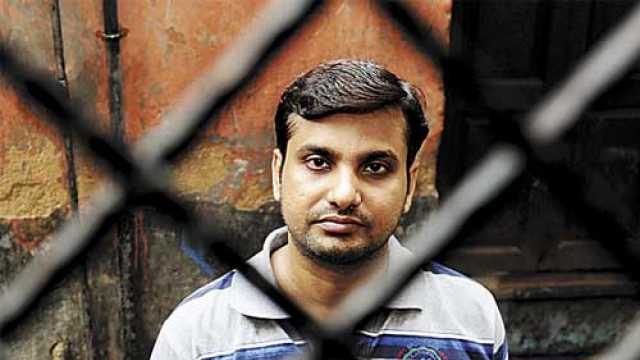Hyderabad: The unspeakable harrowing story of injustice which stole Mohammad Aamir Khan’s the best years of his youth. Just imagine being wrongfully charged and jailed after 14 years of torture, never knowing if you will ever walk free. Aamir receives a shock when he noticed that Delhi Police have silently transferred Rs.5 lakh compensation to his bank account. No apology, no acknowledgement of mistake, this is how the cases investigated?
Can any amount bring his lost 14 years? Who’ll bring back his father? What about his dreams? Not unsurprisingly, the amount of interim compensation pales before the average salary of a middle class Indian for 14 years. Presuming Aamir would have earned a conservative 1.5-2 lakh rupees per annum in the 14 years he spent in jail, that alone makes him eligible for Rs 28 lakh compensation.
He was named a terrorist and accused of involvement in 19 cases of bombings in Delhi, Ghaziabad, Rohtak and Sonepat between December 1996 and October 1997, Amir spent 14 years in different state jails. When he walked out of jail in January 2012 after being acquitted in 17 cases, Amir had already served more time in jail than the maximum term he could have got on conviction.
The sessions court judgments pointed in each of his acquittal the absence of evidence after prosecution witnesses testified that they had been made to sign on blank papers and had never seen Amir earlier. He is awaiting the high court’s decision in two cases now – a Karol Bagh bombing and a case under the arms and explosives Act.
His family faced social shame and financial ruin, his father died of a liver ailment that could not be treated in time and his mother suffered a brain haemorrhage that left her paralyzed and speech impaired.
Like any other youngster, 18-year-old Mohammad Aamir Khan too had a conventional dream of the future. He was however picked up by the Delhi Police one night and was falsely accused of being a terrorist. It took 14 long years for Aamir to get acquitted of the charge.
Aamir has been a witness, even while he was behind bars, to the rise of Hindu fascism and Muslim fundamentalism; he has seen the invisible wall rise up between the Hindu and Muslim communities. Despite this, Aamir continues to build bridges between communities. At least a part of the reason for Aamir’s belief in the values of secularism and democracy is found in the history of Old Delhi, where he was born and where he grew up and lives even now.
The lawyer and writer Nandita Haksar, the co-author of “Framed as a Terrorist” told during book release that “all poor people and many times rich people are also victims of the judicial process which fails to deliver. But Muslims are subjected to prejudices and biases which others are not. I believe the failure of the Indian legal system to deliver justice is caused by many factors, which includes the Bar, which has never intervened to improve the system. It is also the lack of political awareness among the civil society.”
There are several other cases like Aamir’s. So, what goes wrong – the Indian Muslims who become victims, or is it the judiciary process that delays the delivery of justice or both?
She also felt that the increasing biases towards the Muslim community can be removed through massive public campaigns against communal prejudice, somewhat like the Swacch Bharat mission. “Educational institutions have a big role to play but most of all, political parties need to address the problem,” Haksar added.
Siasat Web Team

